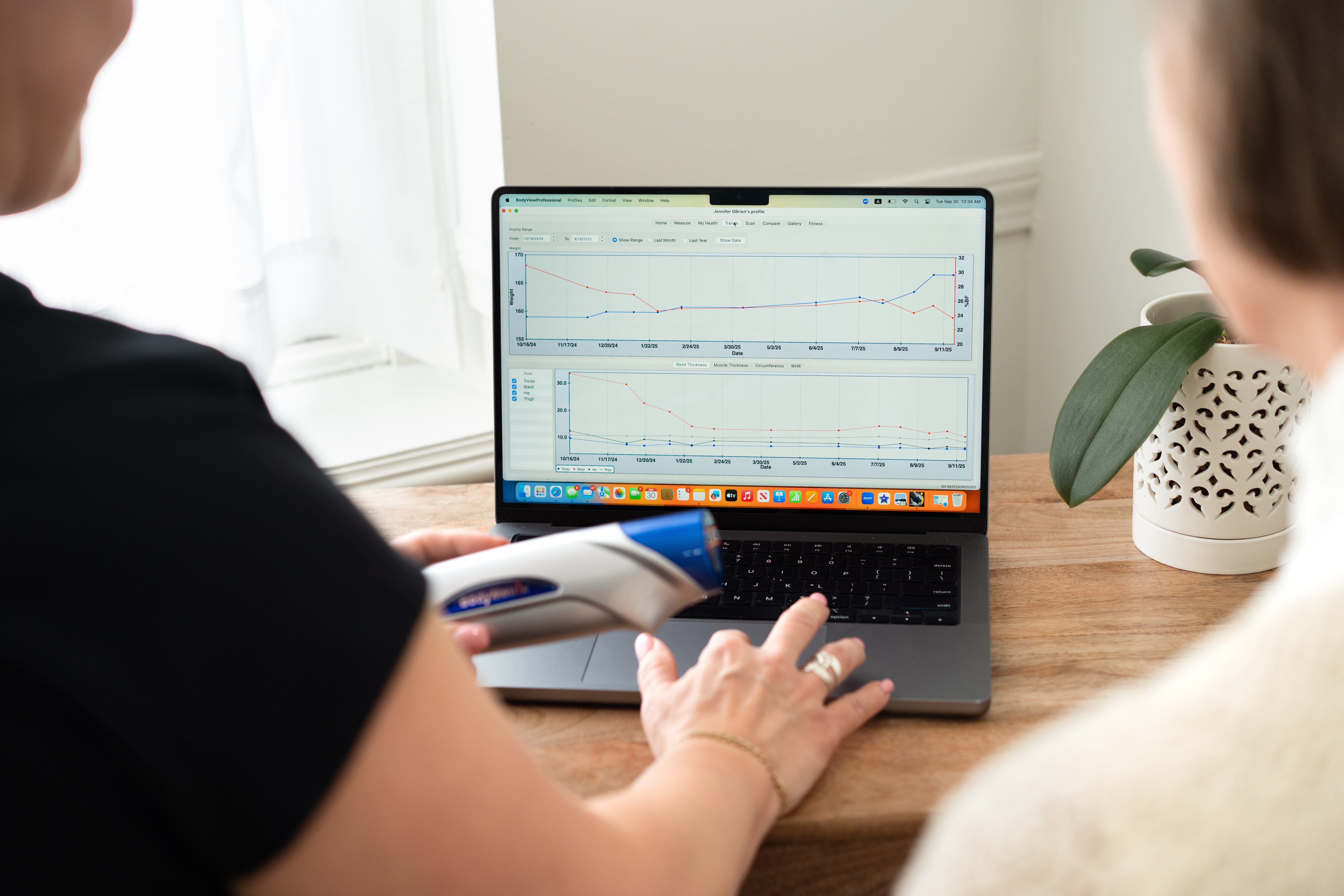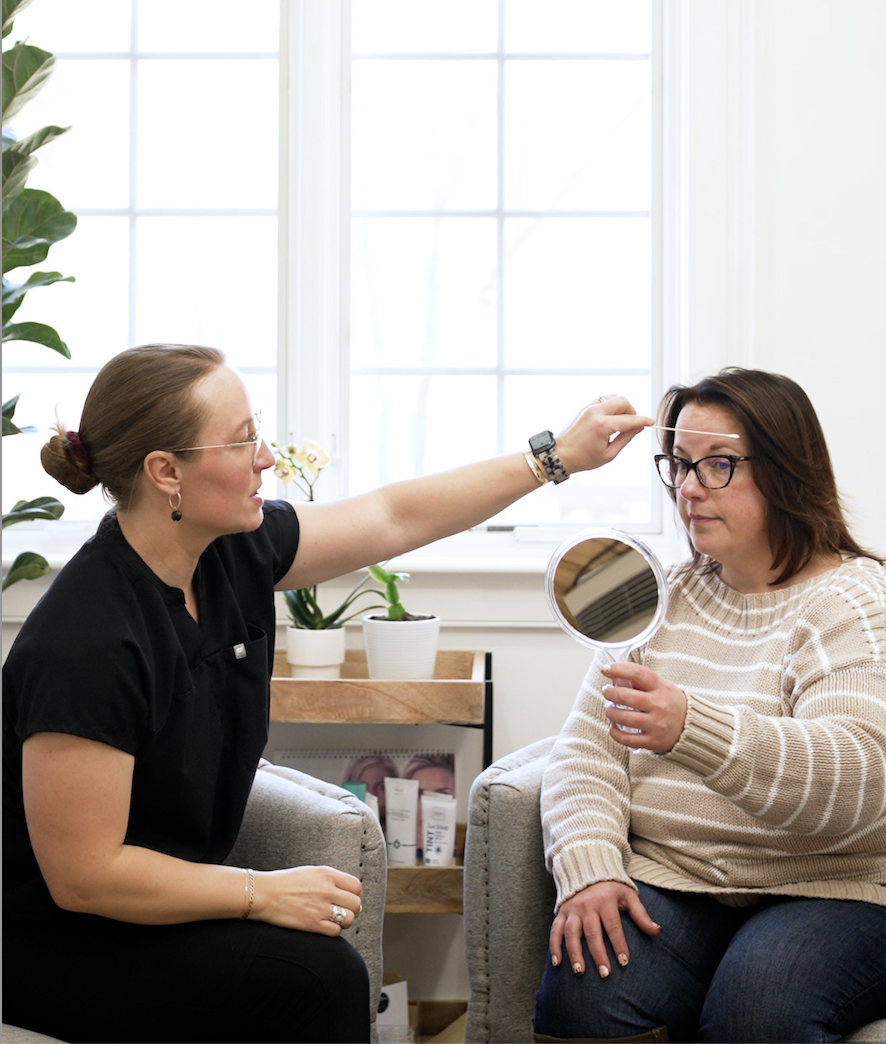



“I’m still not sure if weight loss injections are right for me,” read an email I recently received. “I don’t want to waste your time, can you tell me if I should still come in for the consultation?” The patient was a mom of young kids from Bedford, and had been thinking about seeking treatment with medicines like semaglutide, tirzepatide, Ozempic, and Mounjaro for a while, but she was still on the fence. If you’ve followed me for a minute you probably know I responded with an emphatic, “Yes! Consultation is the perfect way to find out if treatment is right for you. There is no pressure to move forward until you’re ready.”
When she came into my office, she told me a heroic story. Having been overweight since childhood, she’d overcome many habits in recent years and achieved the highest level of health she’d ever known. She was hiking the beautiful southern New Hampshire mountains. She was raising children to love and honor their bodies through healthy movement and nutrition, passing along her victory to the next generation.
But her body language told another story. Her shoulders drooped, her voice was soft, she didn’t smile much. Then she told me about her frustration. How hard she was working to feel her best, and how much brain power she had to put toward her efforts every day. "I'm becoming obsessive about the food I eat, whether I put too much creamer in my coffee. I just want a tool to help me get where I want to go,” she said.
And then she told me what was holding her back–fear of complications and side effects. She, like many patients I speak with in the Amherst area, had heard a lot of horror stories about side effects from weight loss medications. As a woman of perimenopausal age she was very rightly concerned with the possibility of muscle loss and weakening bones. She was actually quite well versed in the potential downsides of weight loss medications.
Having told me all this, and observing her body language, I could tell this patient was in a state of decision paralysis. Her desire to lose weight was in a chaotic battle with her fear of complications, and she wasn’t able to quiet the torrent enough to come to a decision. That’s when I suggested we perform a risk-benefit analysis together.
Risk-benefit analysis is something every healthcare provider does every single time they prescribe any treatment for any patient ever. Every. Single. Time. We ask ourselves, what are the potential benefits to the patient, what are the potential risks, and does one outweigh the other, even by a little bit? Of course, this does not guarantee an optimal outcome, but it’s the best we can do without a time machine to hop into the future and see what will happen.
So she and I listed the potential benefits of temporary, low-dose treatment with a weight loss medication (semaglutide or tirzepatide) for her unique situation.
Fat loss with targeted muscle building would help her feel more confident at work and in her relationships. She would feel more inclined to intimacy with her spouse if her body satisfaction were improved. She would see more pronounced results at the gym, where she’d already been working for years to reach her peak fitness.
In addition to causing weight loss, the medicine tirzepatide (Mounjaro) has the added benefit of quieting what many call “food noise” or the sometimes intrusive thoughts of food that are unrelated to hunger. The “I just put the kids to bed and now I want a sleeve of Oreos” thoughts. This was a specific benefit to this patient, who was really bothered by her mental preoccupation with food and food planning.
Then we discussed the potential downsides and how they might be mitigated. The most common side effects are nausea, bloating and acid reflux. These are usually mild, limited to the first dose, and are reduced when the patient avoids eating too much in one sitting. I recommend only eating until 80% full, and then have another meal in a few hours if needed. In my practice I’ve seen these side effects about 50% of the time, and they have not caused any patient to stop treatment.
As a perimenopausal woman, the patient was wisely concerned with avoiding muscle loss, as it can worsen bone weakening or osteoporosis. But we discussed how she was already engaged in weight bearing exercise, or lifting things that feel a bit heavy on a regular basis. In fact, she was lifting weights four times per week plus doing cardio. I gave her the good news that in terms of building muscle, the magic number seems to be two to three times per week, and adding additional sessions has quite limited value. So I encouraged her that if she felt she was burning herself out on workouts, it was ok to take her foot off the gas a bit. To allay her fears even more, I’d measure her body composition on a monthly basis to objectively measure muscle mass and ensure it wasn’t dropping. If it ever did, we’d reconsider treatment.
Finally, the big, bad, but rare side effects are thyroid problems and pancreas problems. This patient did not have a personal or family history of thyroid or pancreas issues, so we agreed these complications were pretty unlikely. Still, we’d do lab testing to confirm all was normal.
She left my office that day saying she’d think about all we discussed and come to a decision with her spouse. I encouraged her to wait until things felt right to move forward and not rush into treatment.
I got an email from her an hour later telling me about the confident decision she’d made. Our conversation organized her thoughts well enough that she was able to move through the decision making process and feel good about it on the other side.
As I said in our first email exchange, a consultation is never a waste of time.


